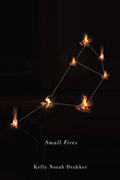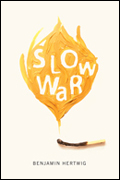Canadian Store (CAD)
You are currently shopping in our Canadian store. For orders outside of Canada, please switch to our international store. International and US orders are billed in US dollars.
April is National Poetry Month. To mark the occasion, we asked Mark Abley, an MQUP acquisition editor and a poet himself, to reflect on how poetry fits into the press’s list.
Exactly twenty years ago, MQUP’s executive director, Philip Cercone, announced the birth of the Hugh MacLennan Poetry Series. It was a departure for the press, though not for the university – from F.R. Scott and Louis Dudek through the decades to Anne Carson and Eric Ormsby, McGill professors had a long and distinguished tradition as poets. As Dudek once stated, with pardonable grandeur, “It is the destiny of Montreal to show the country, from time to time, what poetry is.”

Back in 1998, the press’s more prosaic authors may have felt surprised at MQUP’s willingness to launch a series of original poetry books written by Canadians. University presses in this country, unlike many of their counterparts in the US and UK, had generally looked on poetry as an unwelcome if not embarrassing guest at the scholarly feast. But in fact, poetry books answer one of MQUP’s essential mandates (“to contribute to culture”) and, to a surprising extent, they also meet another (“to promote public debate”).
The Hugh MacLennan Poetry Series now includes forty-two books, including two that were launched in the past few weeks: Sarah Tolmie’s The Art of Dying and Aidan Chafe’s Short Histories of Light. Three more titles will be published this fall. The series has expanded in recent years, not just in number but also in reputation and influence. Kelly Norah Drukker’s Small Fires (2016) won two prizes at the Quebec Writers’ Federation awards, was shortlisted for the Grand Prix du Livre de Montréal, and has just appeared in French translation. Another book from 2016, Margo Wheaton’s The Unlit Path Behind the House, won the Fred Kerner Award given by the Canadian Authors Association and was shortlisted for three additional prizes.

Last fall MQUP was honoured to publish Benjamin Hertwig’s first collection of poems, Slow War, a finalist for the Governor General’s Award. Slow War and a second book from 2017, Julie Paul’s The Rules of the Kingdom, have been nominated for other prizes too. While this kind of recognition is heartwarming for the press, it’s particularly helpful for authors. Gaining attention in the bustling, sometimes conflictual world of Canadian literature is not easy. As Nathalie Cooke, the inaugural editor of the Hugh MacLennan Poetry Series, once observed, “Poetry may be prophetic but it is seldom profitable.” Awards and prizes can draw attention to the prophets.
Don’t make the mistake of thinking that these books are always divorced from the topics that engage MQUP’s scholarly authors. Hook, a 2015 collection by nancy viva davis halifax, describes the experiences of women living in emergency shelters and on the streets of Toronto – the book’s lyricism is suffused with political anger. Dilys Leman’s The Winter Count, published a year earlier, evokes the 1885 resistance of Indigenous peoples in Western Canada. As one reviewer put it, “By recasting actual letters and documents, by imagining the inner monologues of historical characters … by building a rich, polyphonic chorus of testimony, Leman stages a reenactment of that lost, shameful past.” More recently, Slow War gives poetic shape and force to Benjamin Hertwig’s experience as a member of the Canadian Armed Forces who served in Afghanistan. As the Toronto Star noted, “This hard-hitting debut collection is the record of a soldier’s heart, before, during and after war.”
 If such books promote public debate as well as contributing to culture, so much the better. Poets don’t stand apart from the society they inhabit – their words and perceptions shed light on the tangled darkness of our inner and outer lives. At a time when the natural world is in shreds and the political world in chaos, we need the illumination that poems can give. To quote Margo Wheaton’s “Fireflies”: Tonight, they are low green / notes in the field, a barely / audible humming … Poets, like fireflies, help us look into the night.
If such books promote public debate as well as contributing to culture, so much the better. Poets don’t stand apart from the society they inhabit – their words and perceptions shed light on the tangled darkness of our inner and outer lives. At a time when the natural world is in shreds and the political world in chaos, we need the illumination that poems can give. To quote Margo Wheaton’s “Fireflies”: Tonight, they are low green / notes in the field, a barely / audible humming … Poets, like fireflies, help us look into the night.
 back to all news
back to all news
No comments yet.